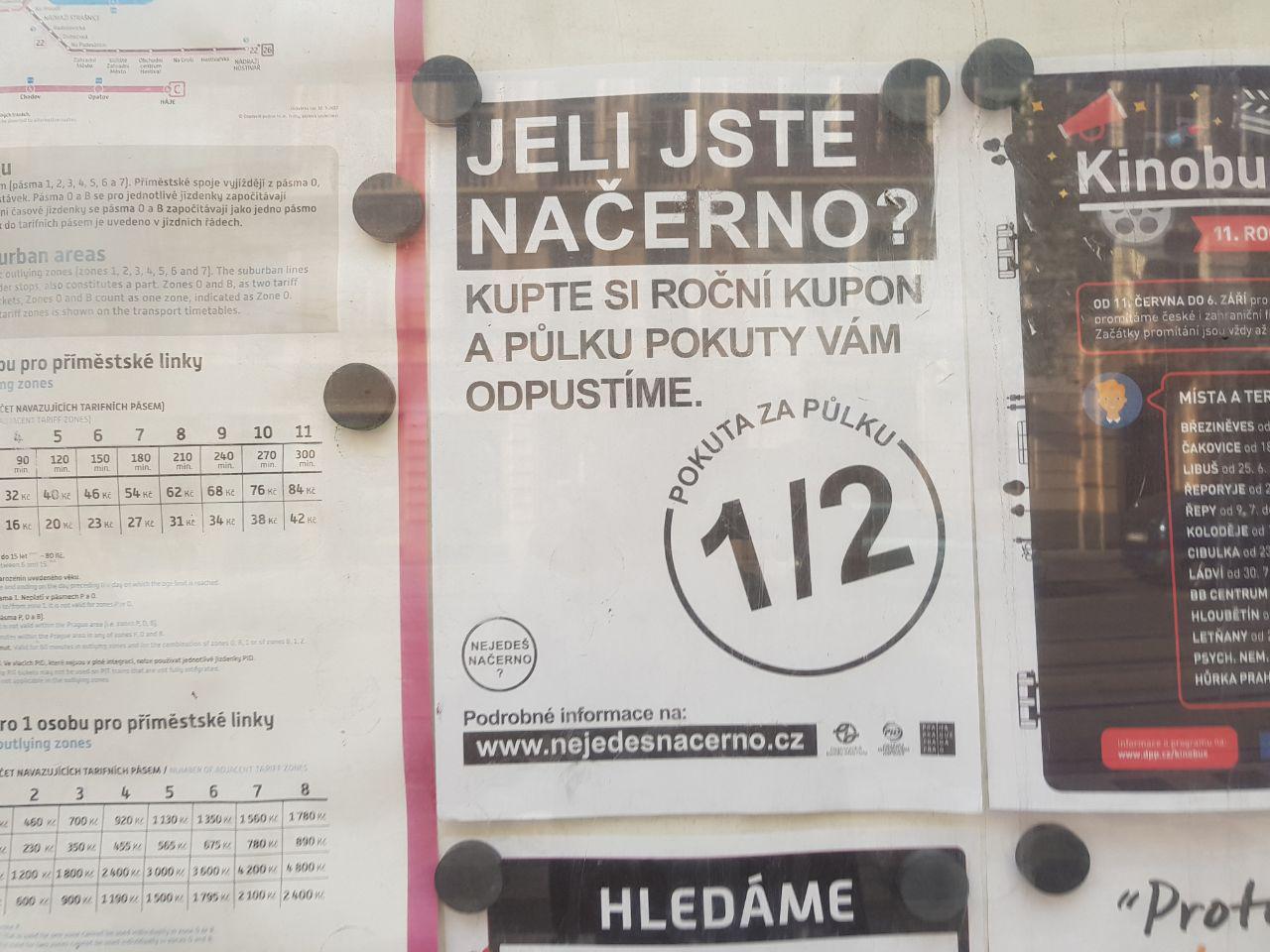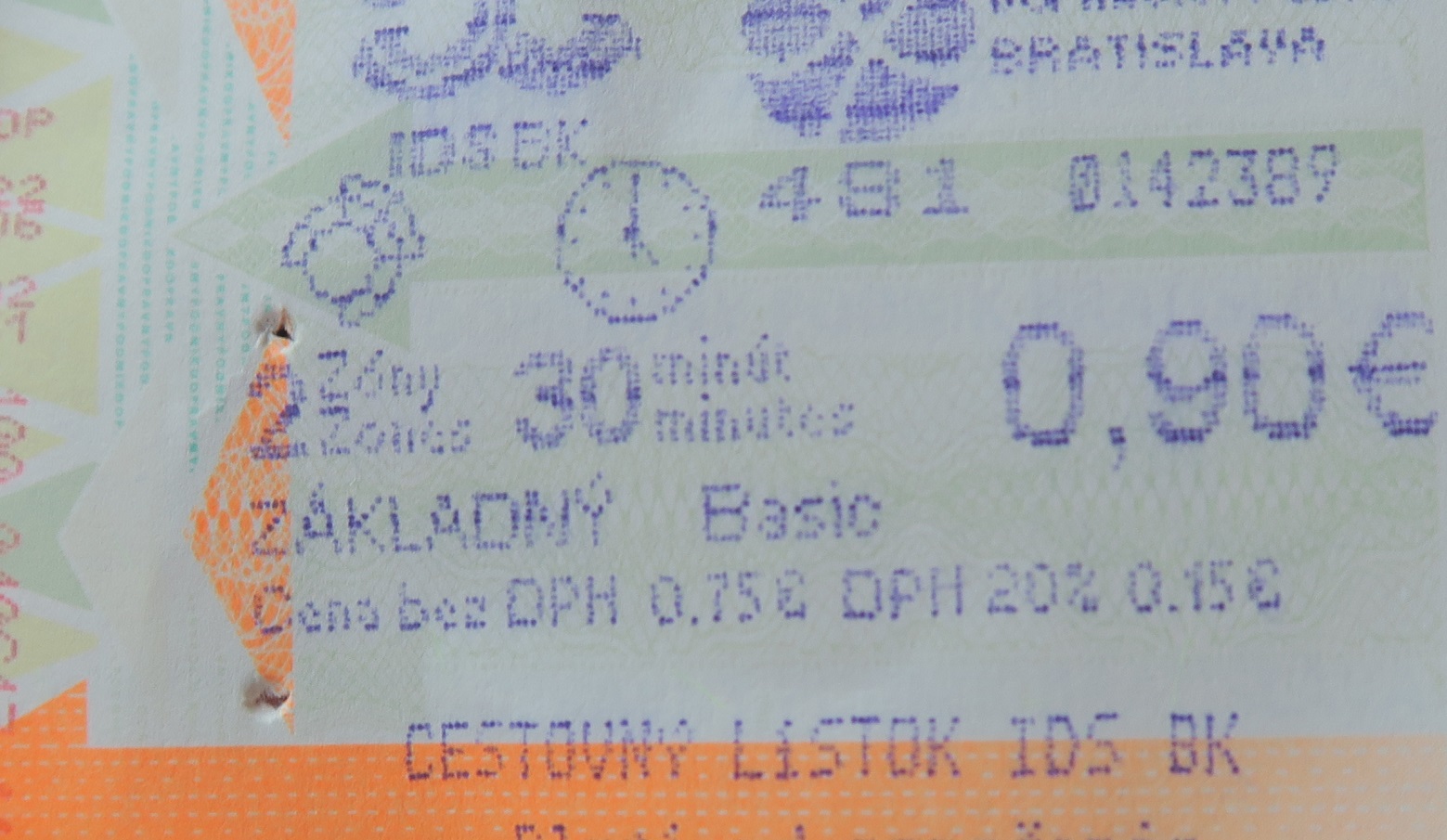Prague is a city of victorious public transport. Today I'll tell you how to pay as little as possible for travel.
This article is not intended for tourists. Bad news for you - you'll still have to buy a ticket more expensive than locals, because short-term tickets are relatively expensive. The only way to save is to find a group on VKontakte or Facebook where people sell monthly tickets that still have, say, a week left, for a third of the price.
Well, what if you're local?
Prague has perhaps one of the best transport systems today. There are no turnstiles, vehicles are relatively clean and quality, schedule is observed.
When I first arrived, I traveled on a student fare, and that's less than 10 euros per month. But, unfortunately, we all age. And exactly when I turned 26, Prague introduced a cool thing - you can buy an annual pass, and it will cost 10 crowns per day - 3650 crowns per year, a bit more than 140 euros.
This is just fucking cheap, given that you can use metro, trams, buses, ferries, funicular and suburban trains within the city.
But yesterday I saw this:

For those in the tank - if you're caught without a ticket and you agree on the spot to buy an annual coupon, you'll get a fine 2 times lower than usual.
Generally, the topic of riding without a ticket is quite interesting. Ever thought about how the fine price and ticket price are formed?
If you're interested, here's an article about fines in European cities. The tendency is interesting - essentially, a fine is the price of some number of tickets. If in one city the fine is 60 single tickets, and in another - 20, which system is cooler?
Well first, think what a fine worth 20 tickets means? It means that if you travel 21 times without a ticket, you're in the black. And this means that purely mathematically in a system where the fine is very low, crafty people will use this. We used such logic in German Cologne when we traveled as three - a ticket costs almost 3 euros, fine - 60. Chance - 1 in 20. And there are three of us - if they catch one, the other 2 will quickly buy a ticket. I.e. essentially, not buying a ticket will hit you with a chance of only 1 in 7. How often are you that lucky?
And also, this essentially means that for 1 caught fare evader there are 20 uncaught ones. Usually, the system works like this - the caught one pays for the uncaught ones. Like in life.
I consider the ideal system to be one where everyone buys tickets. This means the system meets the needs, people agree with the adequate price, money is slowly earned and the system expands according to demand.
There are no ideal systems, of course. Imagine that the city transport system needs growth. Money is needed. Where to get it? You can collect money from responsible citizens - raise the ticket price. You can from irresponsible ones - the fine. Or you can stop spending money on cleaning, comfort, etc.
All these methods are bad.

If you raise the ticket price, fewer and fewer people will want to use transport and more and more will transition to the fare evader category. Fewer people with tickets - the system doesn't realize the need for growth and you get Moscow with its fucked up number of people in Butovo.
If you raise fines for fare evaders - yes, people will buy tickets more often. But there will be less work for controllers. There will be fewer controllers. And when there are fewer controllers, there will be more fare evaders again. Eventually, the number of fare evaders will return to the original, only the system infrastructure will become poorer.
Why spending less money on infrastructure is bad, I won't explain - nobody wants to ride in smelly buses. Everyone will buy themselves a credit shitbox and drive in comfort through traffic jams.
So how to earn for expansion? Surprisingly, by lowering prices. A good system uses a scientific approach, calculates how to make more and more categories of people interested in using transport. To be clearer - students, pensioners and broke people will be interested in it always. Middle class - depending on speed, convenience. Richer people - on comfort.
And now think - what must be in a system that a 1-day ticket will cost a passenger 10 crowns (0.4 euros), and the fine is reduced by half? This means that more and more people are starting to use public transport buying tickets. Basically, Prague transport workers are great guys, they should do trainings in other cities.
Well, and at the end of the article a life hack - so how to save? Well, a fine with 50% discount costs 400 crowns. And when buying an annual coupon a day of travel costs 10 crowns. Theory - if you think you won't be caught within 41 days - you know what to do.
Don't listen to me, but if you're white, look adequate and don't yell in a foreign language, you probably might not be checked for a whole year. Science, it's like that.